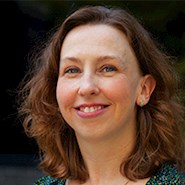
By Tara Hoke
Situation
An ASCE officer forwards to the Committee on Professional Conduct (CPC) a newspaper clipping concerning the federal grand jury indictment of a Society member on charges of bribery and misconduct in office. The newspaper account states that while employed as a local public official the member had awarded a number of significant design contracts to a particular engineering firm. That firm, the article states, had made a number of payments to the ASCE member over the course of his term in public office. The newspaper report further explains that the payments were recorded in the engineering firm's business records as payments for "consulting services" but that no documentation existed to show that any work had been performed by the ASCE member.
The CPC opens an investigation of the member's activities and contacts the federal prosecutors for copies of the grand jury transcript.
Question
Did the ASCE member's actions as a public official in accepting cash payments from the engineering firm in exchange for favorable treatment in awarding design contracts violate ASCE's Code of Ethics?
Decision
At the time of this investigation, canon 1 of the code read as follows: "It shall be considered unprofessional and inconsistent with honorable and dignified conduct and contrary to the public interest for any member of the American Society of Civil Engineers to act for his client or for his employer otherwise than as a faithful agent or trustee."
This same principle is reflected in canon 4 of the current Code of Ethics. Canon 4 states that "engineers shall act in professional matters for each employer or client as faithful agents or trustees and shall avoid conflicts of interest," and category (c) in the guidelines to practice for this canon adds that "engineers shall not solicit or accept gratuities, directly or indirectly, from contractors, their agents, or other parties dealing with their clients or employers in connection with work for which they are responsible."
The CPC interviewed the member in question and reviewed transcripts of the investigation and of the subsequent trial. Throughout the process, the member emphatically asserted his innocence. He contended that he had a close and long-standing professional relationship with the engineering firm in question, that his obligations as a public employee had never been compromised by his occasional work as a private consultant, and that he had certainly never been influenced to unduly favor the engineering firm as a result of his financial connections.
Neither the federal court nor the CPC was persuaded by the member's contention that the funds he had received from the firm were wholly unconnected with the design contracts he had channeled to it. The federal court found the former official guilty on several counts of bribery, and the CPC held that the member had indeed violated canon 1 of the Code of Ethics. The CPC forwarded its findings to ASCE's Board of Direction, recommending that the member be expelled from the Society and that an account of the disciplinary action appear in a Society publication.
The member reaffirmed his innocence in a written statement to the Board of Direction, but the board upheld the CPC's findings and recommendations. An account of the action was published without the member's name.
Tara Hoke is ASCE’s general counsel and a contributing editor to Civil Engineering.
© ASCE, ASCE News, May 2009



